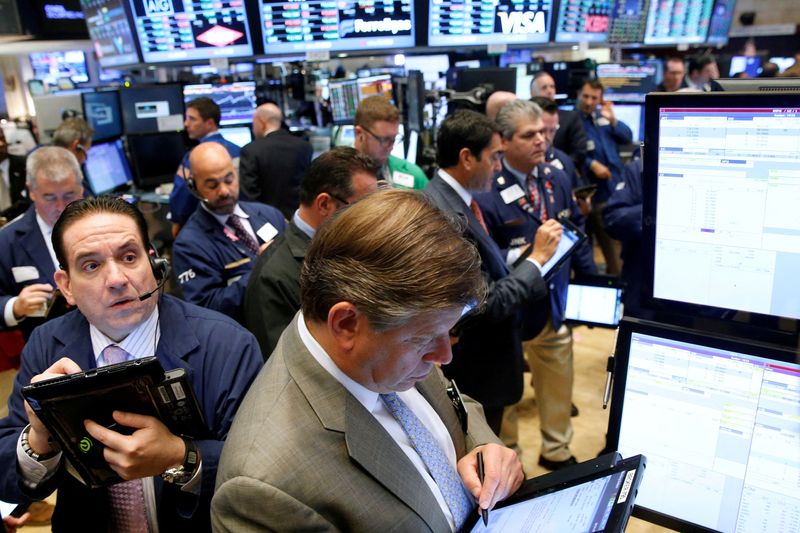By Patturaja Murugaboopathy and Davide Barbuscia
(Reuters) - Global investors have resumed their selling of high-yield corporate bonds after a brief respite in January, as fears over the health of smaller banks add to risk aversion driven by worries over rising interest rates, recession and defaults.
Concerns have been heightened by the wild swings in market interest rates since the collapse of Silicon Valley Bank last week.
Fund managers advise shunning high-yield bonds, despite their attractive yields, because of the risk these bonds could be hit by ratings downgrades, defaults and a squeeze in company earnings.
"Market concerns are elevated, given the uncertainty of a recession this year, the path of inflation, and most recently, the collapse of Silicon Valley Bank," said Jim Smigiel, chief investment officer (CIO) at investment firm SEI.
"Given the volatility of the past few days and the still unfolding situation within financials, the turmoil in the banking sector could certainly increase outflows and further test the system."
The demand for high-yield bonds has faltered since February due to a rise in U.S. Treasury yields, as strong economic activity bolstered expectations that inflation would remain sticky and the Federal Reserve would have to raise interest rates more to contain it.
Refinitiv Lipper data showed high-yield bond funds, after seeing an inflow of $7.63 billion in January, faced an outflow of $11.51 billion in February.
Graphic: Fund flows: Global high yield bonds - https://www.reuters.com/graphics/GLOBAL-FUNDS/GLOBAL-FUNDS/zgpobawxqvd/chart.png
So far this month, high-yield bond exchange-traded funds (ETFs) have seen a total outflow of $506 million.
However, safer money market funds have attracted $28.76 billion, and government bond funds have seen an inflow of $15.52 billion since February.
Graphic: Fund flows into global government bonds - https://www.reuters.com/graphics/FUND-FLOWS/FUND-FLOWS/znvnbldgavl/chart.png
The ICE (NYSE:ICE) BofA Global high-yield bond index has fallen over 3% since the start of February, making the yields attractive at 8.7%.
The yield spread between the BofA high-yield bond index and the U.S. 10-year Treasury bond has risen to more than 500 basis points for the first time since October.
Still, the spread is tighter than the 2,090 basis points during the 2008 financial crisis and about 1,000 basis points in 2020 when the coronavirus crisis hit.
"Investors should look to reduce exposure to the U.S. high yield market at this time because we expect there will be a better entry level in the near future," said David Norris, head of U.S. Credit at TwentyFour Asset Management.
"Once we can be sure that the Fed has reached or is close to reaching the terminal rate, with the potential for a soft to softish landing, investors at that point could begin to increase exposure to high yield."
"In the meantime, investors should stay invested but move up the credit spectrum to higher-rated bonds in more defensive sectors, keeping a lower duration profile."
DEFAULT RISKS RISE
According to Fitch Ratings, the trailing 12-month U.S. high-yield default rate stood at 1.6% in February, the highest since June 2020. The credit rating agency also says default rates are poised to rise toward the historical average of 3.6%.
Deutsche Bank (ETR:DBKGn) predicts higher risks of defaults this year in European high-yield corporate debt as they are increasingly vulnerable to the slowing global economy.

"There's a huge wall of debt that is going to be maturing in 2024 to 2026 that is going to be resetting at much higher interest rates than where it is fixed today," said Christopher Zook, CIO of CAZ Investments.
"And so there's a lot of concern that there's going to be a very significant increase in borrowing costs for these companies that are going to have to refinance in 2024-2026."